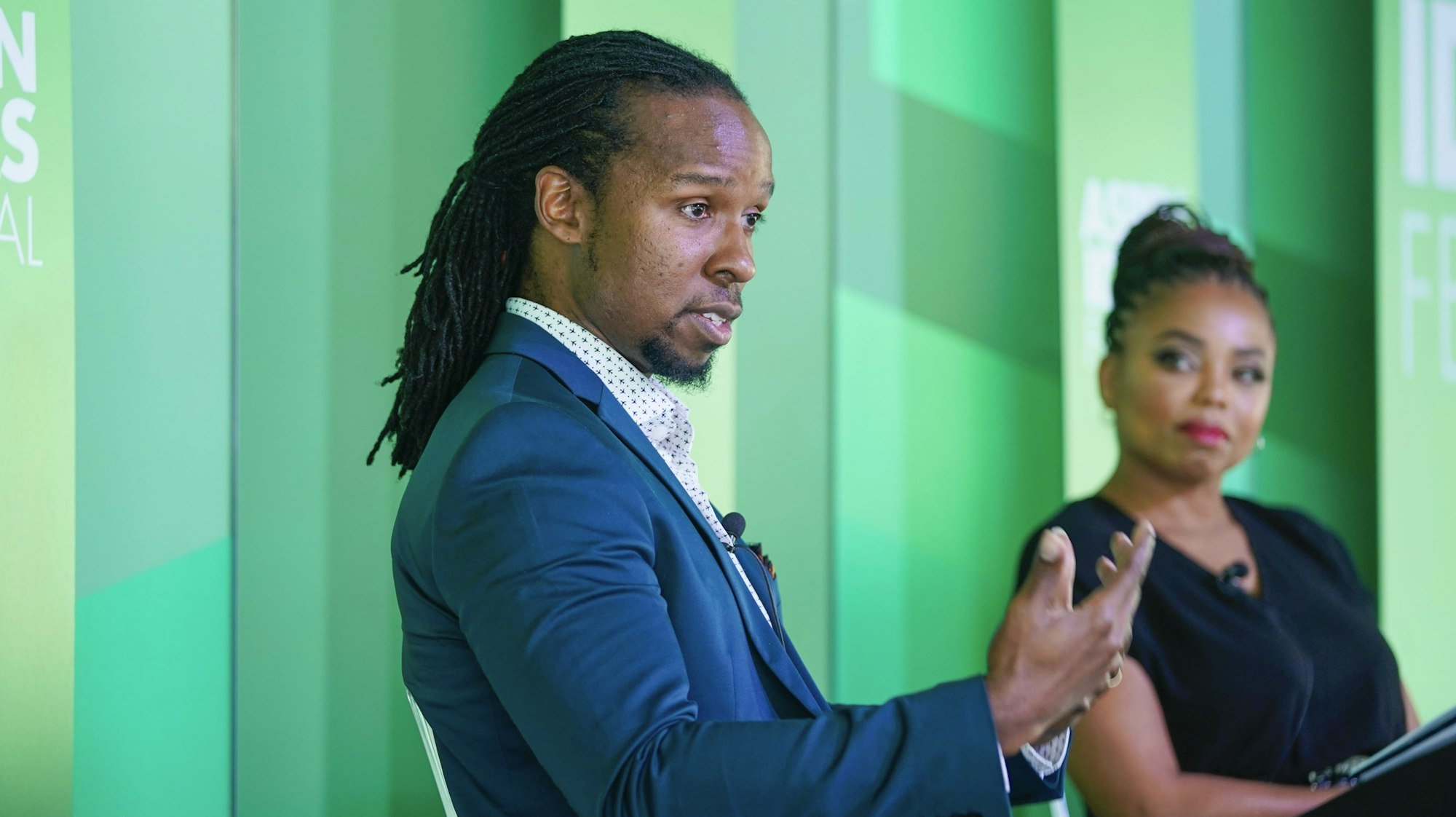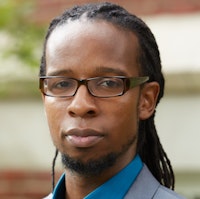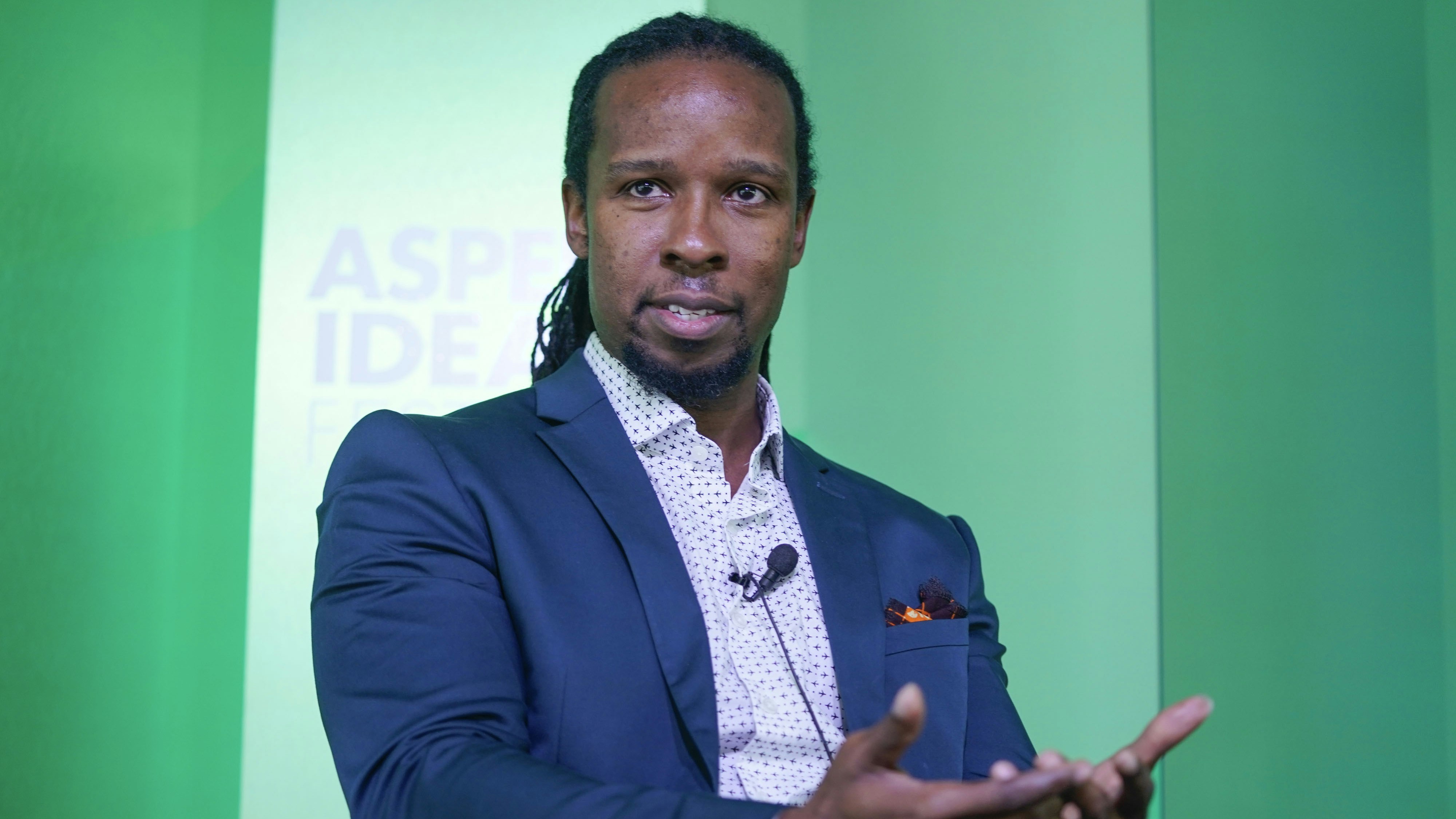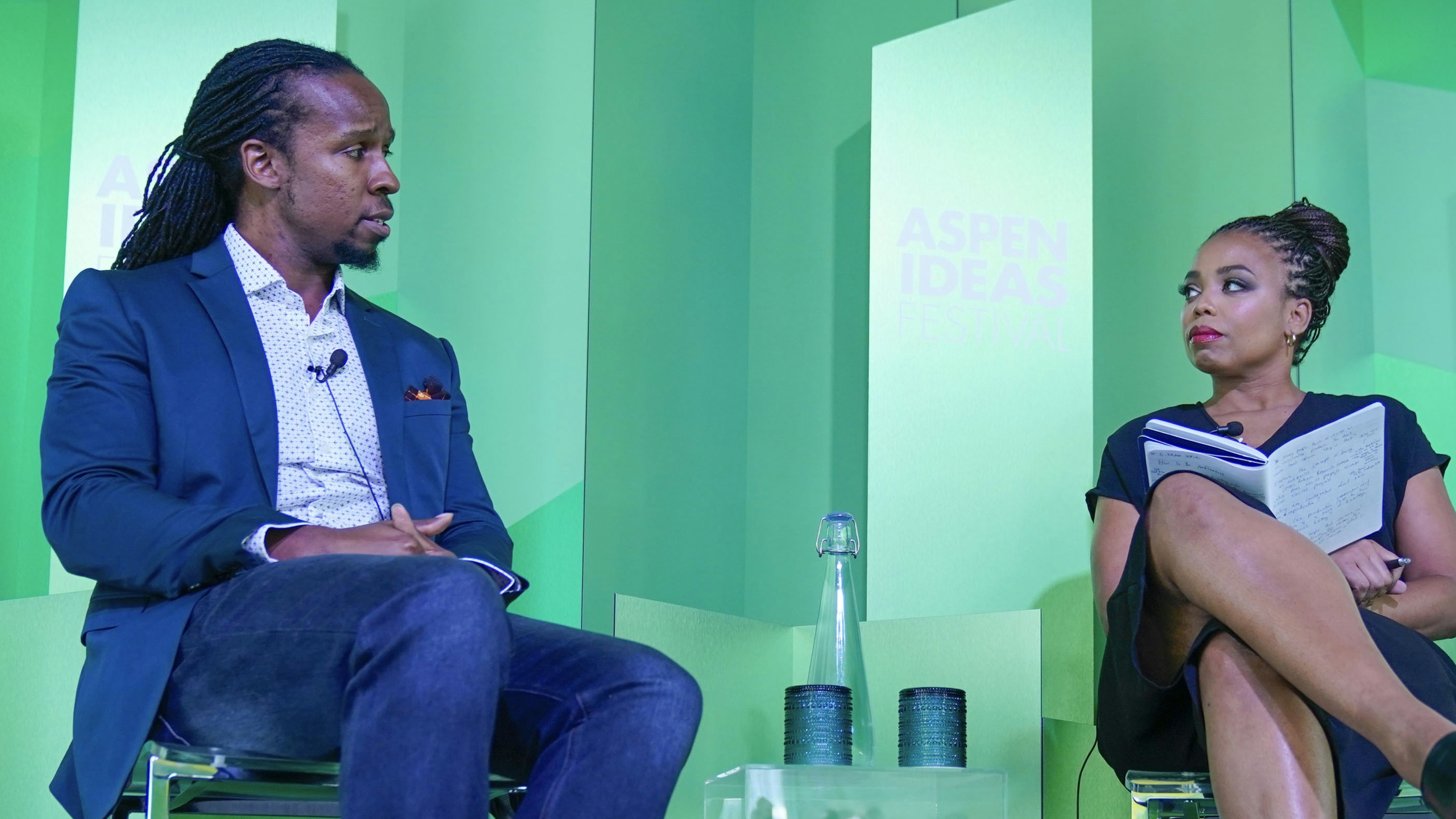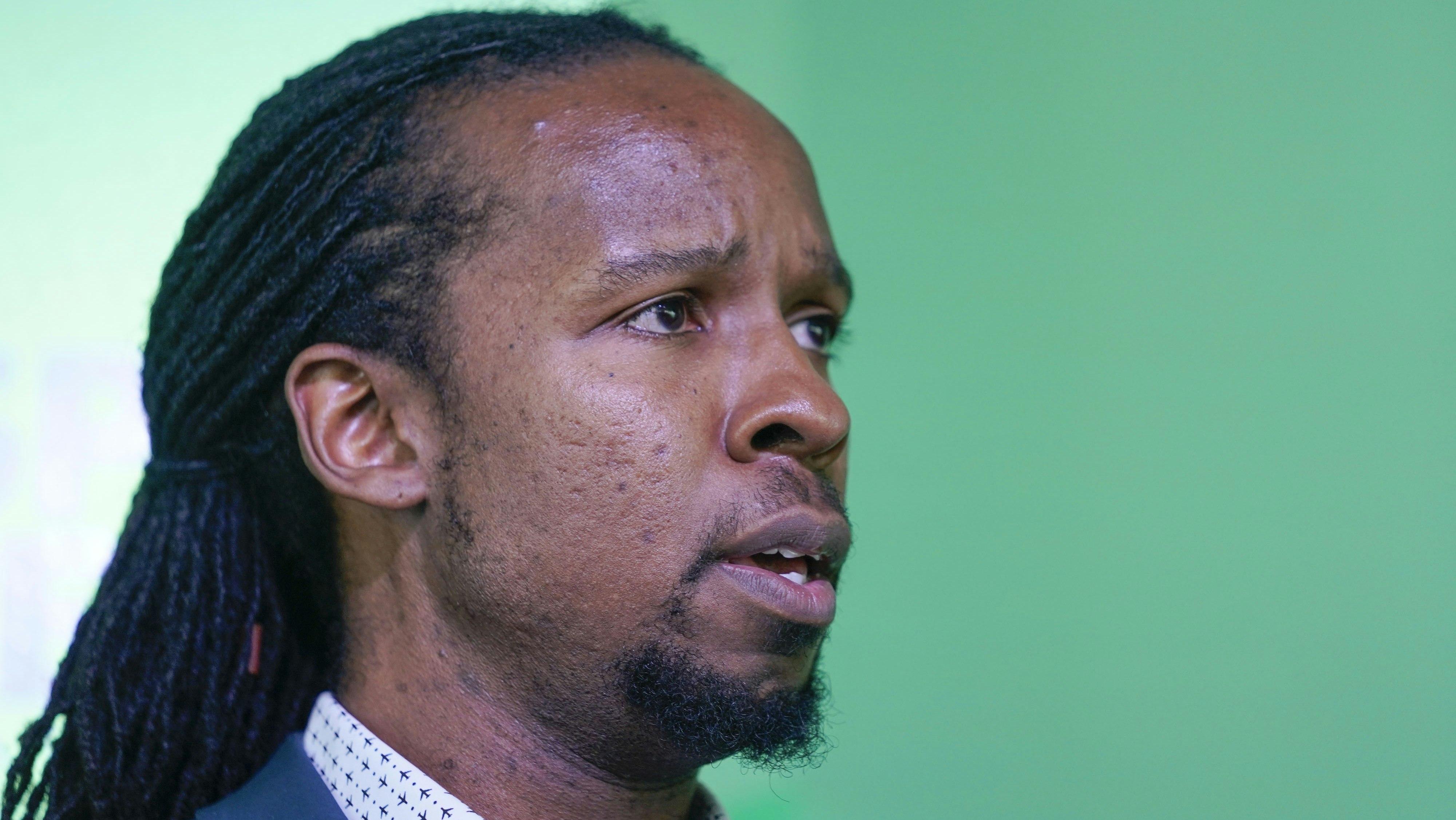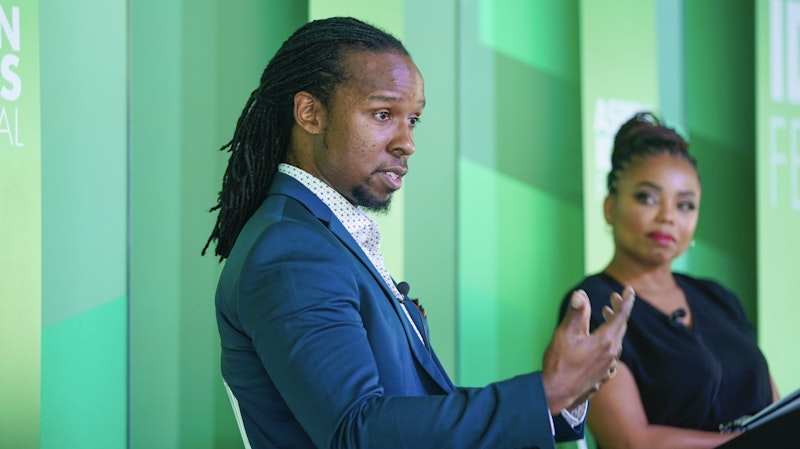
How to be an Antiracist
Setup
“The only way to undo racism is to consistently identify and describe it — and then dismantle it,” writes professor Ibram X. Kendi. That is the essence of antiracism: the action that must follow both emotional and intellectual awareness of racism. Kendi sits down with journalist Jemele Hill to explore what an antiracist society might look like, how we can play an active role in building it, and what being an antiracist in your own context might mean.
You’re either racist or antiracist; there’s no such thing as ‘not racist’
Author and historian Ibram X. Kendi claims there’s no such thing as being 'not racist.' He explains that even inaction (simply being ‘not racist’) in the face of racism is, in fact, a form of racism. The idea of an innocent bystander is wishful thinking for Kendi; instead, there’s only racism and antiracism:
If racism means both racist action and inaction in the face of racism, then antiracism means active participation in combating racism in all forms.
We need to flip the script on the roots of racism
Most people think “the roots of racism are ignorance and hate,” says journalist Jemele Hill. But after extensive research on structural and attitudinal racism, Kendi has a very different way of understanding what — or more accurately who — produces racism. Groundswells of racism don’t produce racism policies; in fact, it’s the other way around. Those in power use racism to justify their policies, wielding the emotive power of ignorance and hate as tools at their disposal.
Big IdeaInstead of racist ideas leading to racist policies, I found racist policies leading to racist ideas.Ibram X. Kendi
And why would someone rally the masses around racism? It all comes back to good old self-interest, according to Kendi’s research. It’s a craven calculation, but if someone wants to get elected, add to their profit margins, or just raise their profile, racism has consistently proven helpful.
Why are conversations about race so unproductive?
How a strategy to undermine racism backfired
One of the most popular strategies used by black communities to fight back against racism has backfired, says Ibram X. Kendi. Respectability politics have long been the go-to tactic for black communities, having been implanted by white abolitionists and passed down for generations.
Know the Terms
The subtext of respectability politics, argues Kendi, is that black people are partially responsible for the racist ideas directed at them because of how they act. This popular tool used for centuries to combat racism, therefore, is itself racist. And Kendi says this is an example of how convoluted discussions of race, even within black communities, have become.
Confronting internalized racism
An audience question about internalized racism in black communities prompts Ibram X. Kendi to call for people of color in positions of power to step up in the fight for antiracism:
Learn More
Additional Information
Resources
"How to Be an Antiracist" by Ibram X. Kendi
Explore More
USA

The 2024 presidential election is only months away, and the past few weeks alone have brought shocking headlines that change the political ground we stand on — an attempted a...


Conflict and suffering can bring out the worst in people, but it can also bring out the best. This is one of the lessons New York Times columnist Nicholas Kristof has learned...


The federal right to abortions in the United States has been overturned, access to contraception and IVF services are threatened in many states, and the gender wage gap persis...


The Supreme Court has issued another series of controversial and consequential decisions this term, fueling discussion on the current state of the judicial branch. Recent poll...

Henry Louis Gates Jr. — one of America’s leading public intellectuals and director of the Hutchins Center for African and African American Research at Harvard — explains the i...

A nonbinary comedian challenges us to question our notions of self, gender and society, and opens our eyes to what we may gain in the process.

Why do some conversations succeed while others stumble? The neurology and psychology of communication offer surprising explanations for why human connection goes right or wron...

Americans feel more polarized than ever, but two governors from opposite sides of the aisle have made it their mission to show otherwise.

Women are twice as likely to invest in female-led businesses. Explore the ways women approach wealth building and investment, and how they create opportunities to build financ...

The rollback of reproductive rights, the push to end no-fault divorce, and gun laws that allow domestic abusers to own a firearm are turning the clock back on women’s rights....
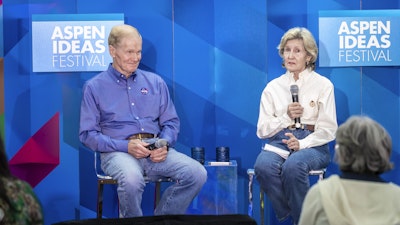
Former Senators Bill Nelson and Kay Bailey Hutchison discuss the bipartisan work that defined their careers, suggest ways for today’s elected officials to find common ground,...
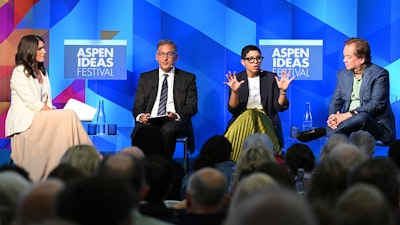
As the Supreme Court concludes another contentious term, it is once again reshaping the legal landscape. With cases on abortion, gun rights and social media — and potentially...
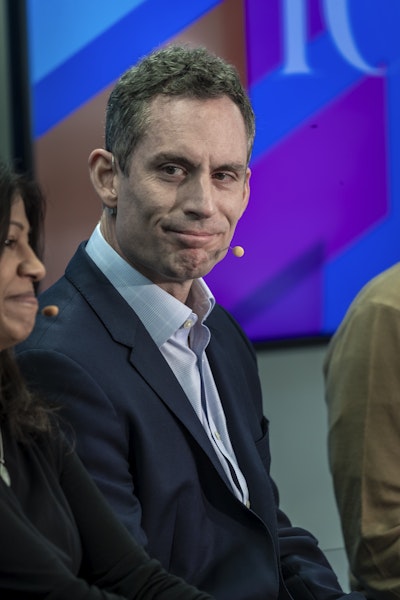
With ESG caught in the political culture wars, business executives must decide to speak up or stay quiet about climate, diversity and democracy. What do employees and citizens...

Two billion people worldwide are set to vote in elections this year, amid global conflict, societal mistrust, broken information ecosystems — and the truth-destroying disrupti...

Amid seismic shifts in the entertainment world, Oscar-, Golden Globe- and Emmy-winning Brian Grazer has managed to keep pivoting to new ways to tell stories in movies, TV and...

As the stakes of political confrontation have escalated, the issue of forgiveness is complicated. Should one ever hold the line rather than look for avenues of reconciliation,...

Marriage rates have been decreasing for decades, but that doesn’t mean people aren’t finding new ways to create family ties that bind. Family bonds in the LGBTQ community and...

From one of the highest perches in the entertainment industry, the CEO of sports and entertainment behemoths Endeavor and TKO takes us on a journey of leadership and leverage....

The innovative philanthropist who paid off the student debt of the entire graduating class of Morehouse College class of 2019 talks about how to ensure all communities benefit...

Images communicate truths, and also lies. Learning to pay attention to photographs can help us discern. An art and cultural historian and a visual artist host a master class o...


